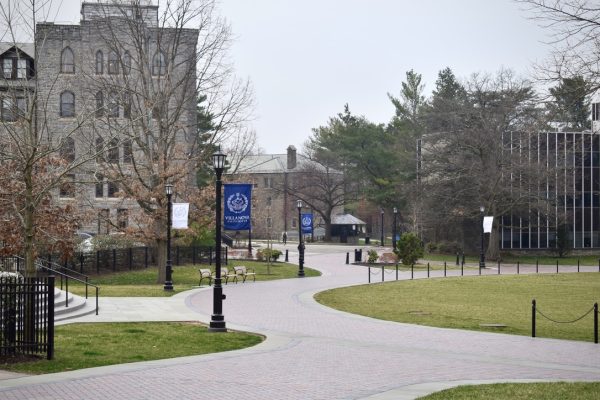Letter to the Editor
February 3, 2016
Dear editors,
I am writing in response to the article Will Wetzel wrote in last week’s issue, in which he focuses on Villanova’s safe zone program, asserting that it “breeds intolerance” by “[expelling] beliefs that do not match up with [students’] views.” I firmly disagree with his claim that safe zones compromise students’ ability to engage in dialogue and add that his critique of the program reveals a fundamental misunderstanding of the program and its mission.
The claim that safe zones somehow allow students to “refuse to learn about dealing with discrimination” is misguided. To suggest that students of color, LGBT students, students with disabilities and other marginalized groups at Villanova (for whom the safe zone program is generally, but not exclusively, intended) aren’t aware of discrimination in the real world or are in need of a lesson in navigating systems of discrimination is absurd, even if, as Will claims, Villanova is not a “warzone of intolerance.” The existence of safe zones on campus cannot possibly have such a large impact as to shelter students from discrimination that exists elsewhere. They are not intended to do that. Rather, safe zones are intended to let students know that a fellow Villanovan—an RA, a professor, a staff member, or a classmate—is available in the event that the student would like to discuss their experience in an area free of the intolerance and judgment that the writer claims safe zones breed.
I agree with Will’s statement that dialogue is important, though I disagree with his characterization of dialogue as a “simple solution” to problems of discrimination, which are rooted in structural and systemic issues. I encourage Will and other Villanova students to seek out opportunities to engage in dialogue, particularly on topics of privilege and oppression. The onus cannot continue to remain exclusively on marginalized members of the community to engage in these conversations. I strongly recommend that students interested in dialogue participate in Villanova’s Intergroup Relations program, an incredible opportunity to engage with other Villanovans across all sorts of differences—race, gender, socioeconomic status, and others—and learn about the function and importance of safe spaces.
Lastly, I would like to thank Will Wetzel for writing his article last week. While I strongly disagree with the premise of his piece, I appreciate his contribution to an important and ongoing dialogue about privilege on Villanova’s campus.
Best,
Danny Shea







